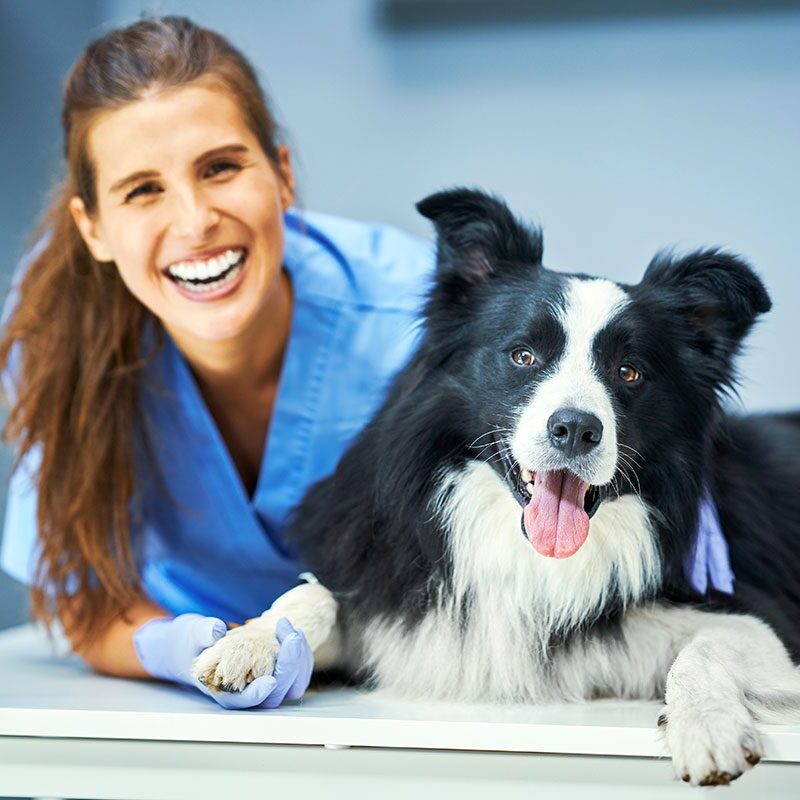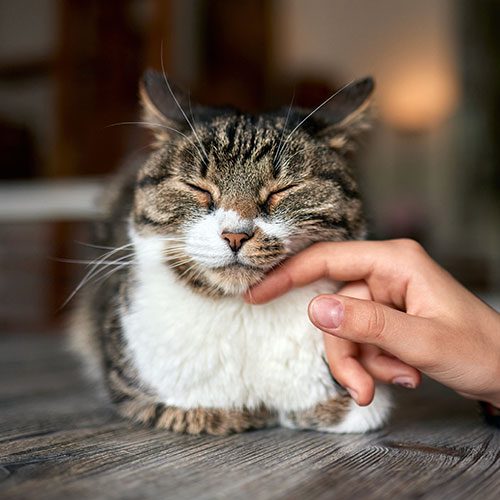What is a Pet Wellness Exam?
The wellness exam is an annual physical exam we recommend for all dogs and cats. It gives us the ability to detect disease processes early enough to treat them with minimal effect on your pet and make recommendations to improve your pet’s overall care.
The wellness exam generally includes:
- Physical Exam: We evaluate your pet’s health by checking their vitals and examining them from nose to tail for any signs of health problems.
- Parasite Exam: We perform a parasite exam to see if your pet is harboring any fleas, ticks, heartworms, and other internal or external pests.
- Complete Blood Screen: We recommend a complete blood screen to check your pet for any internal health problems that aren’t apparent from the outside.
- Oral Exam: Dental disease is common in dogs and cats. We’ll check your pet’s teeth and gums to see if they’re due to have their teeth cleaned.
- Nutrition: A balanced diet is critical. We’ll discuss your pet’s nutritional needs to ensure they’re getting the right nutrients.
- Vaccinations: If your pet has a clean bill of health and is due for their immunizations, we’ll get them up-to-date.
How Your Pet’s Care Changes as a Senior
Senior dogs and cats typically need to see the vet more frequently than adult pets. Most pets are considered seniors by age seven, but this can vary depending on the animal’s species, breed, size, and overall health.
Once our companions are around six to nine years of age, they become more prone to health issues such as:
- Osteoarthritis
- Dental disease
- Obesity
- Diabetes
- Hyperthyroidism or hypothyroidism
- Heart disease
- Vision and hearing loss
- Lumps and bumps
To stay ahead of these issues, we recommend annual physical exams and blood work (and potentially urine testing). These steps provide insight into your pet’s condition and can alert us to abnormal changes. This is why annual checkups are so critical–they give us a starting baseline, which makes abnormalities easier to catch.
Does My Pet Need Parasite Prevention Year-Round?
We highly suggest keeping your dog or cat on parasite prevention all year round, because these critters can thrive in all kinds of climates, as long as the temperature is above freezing. The other issue is that fleas and ticks can find places to shelter from the cold–like your home! To minimize the risk of an infestation as much as possible, ensure your pet is getting their monthly flea and tick medication. Remember, fleas and ticks can affect humans, too.










